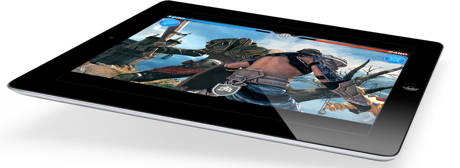Why nearly everybody will want an iPad 2


Quoted by several sites was Jack Gold, an analyst at J. Gold Associates. He said that "Apple didn't really move the bar all that much." Here he takes aim at the iPad 2 on Computerworld:
"I don't see this as heads above the competition, especially the Xoom, right now. Apple fans who want the latest will buy this or upgrade, but I don't see any overwhelmingly compelling capabilities that would make people sitting on the tablet fence go out and buy one."
Over at eWEEK.com, analyst Ken Hyers at Technology Business Research, said that while iOS offers consistency, developers and customers will really want an open platform, not the Apple closed one.
“This comes at a cost as some customers and developers bristle at the amount of control that Apple wields. From a developer perspective, Android is open-source and it’s easier to develop apps for Android devices. For hardware developers, it’s straightforward to build whatever device they want using Android. Look at the Xoom,” Hyers said.
Let's take a closer look at some of the assumptions in this "analysis:"
Not a compelling upgrade. For the same price schedule, Apple is offering customers a device that's a third thinner, and twice as fast, while still keeping the same strong 10-hour battery lives. Oh, and then there are the cameras, and mirrored video out. But this and more isn't compelling enough.
What is clear from the many tablets that were announced and then pulled off the market over the past year is that Apple started off at a very high level. They don't have to reinvent the model. Instead, this solid incremental upgrade won't likely stall enterprise deployments. It's not such a difference that a company might wait to requalify the platform. Instead, they will proceed.
Here's the real message: Apple is the company in the lead of the tablet market and everyone else is playing catchup. All Apple had to do on Wednesday was to put out a solid, refresh that will give confidence to the consumers and enterprise customers that are readying purchase and deployment, respectively. They did that.
Some say that the iPad 2 isn't a "competition killer." These analysts have it backwards — Apple isn't the one that has to kill the wannabes. Rather, it's up to the competition to come up with a truly compelling value, one that trumps the iPad.
Unfortunately for Apple's tablet competitors, they started the race behind in all parts of the ecosystem: hardware, software, apps and accessories. Nobody has even caught up and not the Xoom.
Flash. Forget about it. And by the way, there's no Flash Player on an Android tablet yet. Maybe next quarter. Or the next. Whatever.
Apple fanboys are the customer. If we've learned anything from the continuing sales of iPhone, iPod and iPad, everybody uses these products. It's not the installed base of Mac users supporting iOS as it was in the first year of the original iPod's release. It's everybody now. Who isn't a fan of some Apple product, other than the Gates household?
It seems to me that there's an assumption underlying some of this criticism: All computing devices are alike. With this assumption, it doesn't matter if you have a machine from one vendor or another, they are all alike. And for the past 25 year or so, in the DOS and then the Wintel markets, this has been mostly the case.
Only Apple was the exception. Its Macintosh hardware and software was different.
Now, there are significant differences between the value propositions for devices such as smart phones, handheld computing devices such as the iPod Touch, and tablets offered by different makers. The systems are different. The hardware platform too. The content proposition. The application marketplace. The support proposition. All different.
When there's uncertainty in the marketplace, customers will seek consistency, just as Hyers said.
That is exactly what Apple delivered this week.